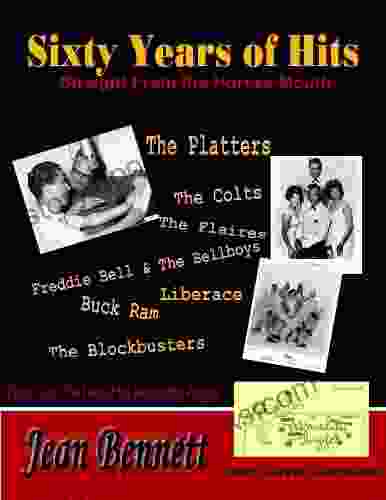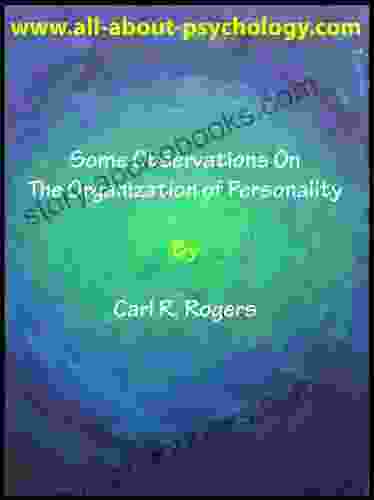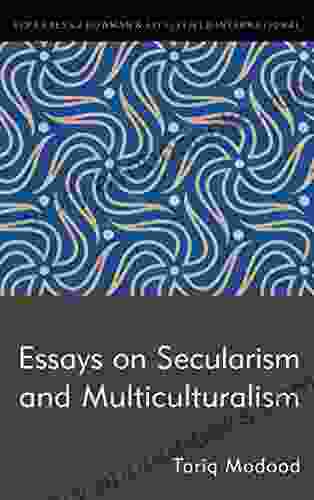Some Observations On The Organization Of Personality: A Journey into the Psyche

In the realm of psychology, the concept of personality stands as an enduring enigma, a tapestry of intricate traits and behaviors that define our unique essence. Over the decades, scholars and practitioners alike have delved into the depths of human nature, seeking to unravel the fundamental principles that govern our psychological makeup. Among the seminal works that have shaped our understanding of personality stands "Some Observations On The Organization Of Personality," a groundbreaking study by Sigmund Freud that laid the cornerstone for modern psychoanalytic theory.
Published in 1923, "Some Observations On The Organization Of Personality" represents a profound exploration of the human psyche. Freud, the father of psychoanalysis, proposed a revolutionary model of personality that divided the mind into three distinct components: the id, ego, and superego. Each component, he argued, plays a crucial role in shaping our thoughts, feelings, and actions, forming a dynamic interplay that determines our overall personality.
4.4 out of 5
| Language | : | English |
| File size | : | 115 KB |
| Text-to-Speech | : | Enabled |
| Screen Reader | : | Supported |
| Enhanced typesetting | : | Enabled |
| Word Wise | : | Enabled |
| Print length | : | 27 pages |
| Lending | : | Enabled |
The Id: A Primordial Force
At the core of Freud's model lies the id, a primal reservoir of instinctive drives and desires. Operating according to the "pleasure principle," the id seeks instant gratification, driven by basic biological needs and impulses. It demands immediate satisfaction, regardless of the consequences or social norms. The id represents the raw, unbridled aspect of our psyche, seeking pleasure and avoiding pain with reckless abandon.
The Ego: The Mediator of Reality
In contrast to the impulsive id, the ego serves as the mediator between the id's demands and the constraints of the external world. Governed by the "reality principle," the ego strives to satisfy the id's desires in a realistic and socially acceptable manner. It weighs the consequences of actions, considers the expectations of others, and attempts to balance the demands of the id with the constraints of society.
The Superego: The Moral Compass
Finally, the superego represents the moral compass of the personality. It embodies our conscience, internalized societal values, and ethical principles. The superego strives for perfection, demanding adherence to rules and social norms. It often conflicts with the id's impulsive desires, creating internal tension and guilt when the id's demands clash with the superego's moral constraints.
Defense Mechanisms: The Protectors of the Psyche
In navigating the complex interplay of these personality components, Freud identified a series of defense mechanisms employed by the ego to protect the psyche from anxiety and conflict. These mechanisms include:
- Repression: Banishing threatening thoughts and memories from conscious awareness.
- Projection: Attributing one's own unacceptable thoughts and feelings to others.
- Displacement: Redirecting feelings from their original target to a less threatening one.
- Rationalization: Creating logical explanations to justify unacceptable behavior.
- Sublimation: Channeling unacceptable impulses into socially acceptable activities.
The Genesis of Personality DisFree Downloads
Freud's model of personality not only provided a framework for understanding normal psychological functioning but also shed light on the origins of personality disFree Downloads. According to Freud, personality disFree Downloads arise from fixations or conflicts at specific stages of psychosexual development. For example, an individual fixated at the oral stage may develop an excessive need for oral gratification, leading to a dependent or aggressive personality style.
The Legacy of "Some Observations On The Organization Of Personality"
"Some Observations On The Organization Of Personality" has left an indelible mark on the field of psychology. Freud's model of personality has served as the foundation for countless subsequent theories and therapeutic approaches. Psychoanalytic therapy, based on Freud's principles, remains a widely practiced treatment modality, helping individuals explore the unconscious roots of their psychological struggles and develop a more integrated personality.
Beyond its direct impact on psychology, "Some Observations On The Organization Of Personality" has also influenced other disciplines, such as literature, sociology, and anthropology. Its insights into human nature have shaped our understanding of character development, social interactions, and cultural dynamics.
"Some Observations On The Organization Of Personality" stands as a seminal work that has revolutionized our understanding of personality. Freud's model of the id, ego, and superego has provided a profound framework for exploring the complexities of human behavior and motivations. Through its analysis of defense mechanisms and the origins of personality disFree Downloads, "Some Observations On The Organization Of Personality" has left a lasting legacy on psychology and beyond. Its insights continue to guide practitioners, researchers, and anyone seeking a deeper understanding of the human psyche and the enigmatic nature of personality.
4.4 out of 5
| Language | : | English |
| File size | : | 115 KB |
| Text-to-Speech | : | Enabled |
| Screen Reader | : | Supported |
| Enhanced typesetting | : | Enabled |
| Word Wise | : | Enabled |
| Print length | : | 27 pages |
| Lending | : | Enabled |
Do you want to contribute by writing guest posts on this blog?
Please contact us and send us a resume of previous articles that you have written.
 Book
Book Novel
Novel Page
Page Chapter
Chapter Text
Text Story
Story Genre
Genre Reader
Reader Library
Library Paperback
Paperback E-book
E-book Magazine
Magazine Newspaper
Newspaper Paragraph
Paragraph Sentence
Sentence Bookmark
Bookmark Shelf
Shelf Glossary
Glossary Bibliography
Bibliography Foreword
Foreword Preface
Preface Synopsis
Synopsis Annotation
Annotation Footnote
Footnote Manuscript
Manuscript Scroll
Scroll Codex
Codex Tome
Tome Bestseller
Bestseller Classics
Classics Library card
Library card Narrative
Narrative Biography
Biography Autobiography
Autobiography Memoir
Memoir Reference
Reference Encyclopedia
Encyclopedia V N Datta
V N Datta Terry Mcmillan
Terry Mcmillan Patrick Roche
Patrick Roche Terry Stavridis
Terry Stavridis Ross Gilfillan
Ross Gilfillan Ricardo Soares De Oliveira
Ricardo Soares De Oliveira Michael Kinnett
Michael Kinnett Frederick Douglass
Frederick Douglass Ellen Schreiber
Ellen Schreiber Thierry Cohen
Thierry Cohen Monique M Ingalls
Monique M Ingalls Jennifer Klein
Jennifer Klein Susan Abulhawa
Susan Abulhawa Robert B Marcus Jr
Robert B Marcus Jr Tom Jokinen
Tom Jokinen Ragemax
Ragemax Stephanie L Mcandrews
Stephanie L Mcandrews Richard La Ruina
Richard La Ruina Jane Kirkpatrick
Jane Kirkpatrick Penny Henderson
Penny Henderson
Light bulbAdvertise smarter! Our strategic ad space ensures maximum exposure. Reserve your spot today!
 Gerald ParkerFollow ·4.9k
Gerald ParkerFollow ·4.9k Doug PriceFollow ·8.2k
Doug PriceFollow ·8.2k Joel MitchellFollow ·3k
Joel MitchellFollow ·3k Patrick HayesFollow ·6.1k
Patrick HayesFollow ·6.1k Neal WardFollow ·11.3k
Neal WardFollow ·11.3k Wade CoxFollow ·4.4k
Wade CoxFollow ·4.4k Jett PowellFollow ·19.3k
Jett PowellFollow ·19.3k Osamu DazaiFollow ·7.4k
Osamu DazaiFollow ·7.4k

 Jorge Luis Borges
Jorge Luis BorgesUnlock Your Inner Musician: The Ultimate Guide to...
Embark on a Musical...

 Carlos Drummond
Carlos DrummondQuick Reference Guide To Percussion Instruments And How...
Unleash your inner rhythm with...

 Roberto Bolaño
Roberto BolañoUnlock Your Guitar Potential: The Ultimate Guitar Mastery...
Are you ready...

 Fred Foster
Fred FosterLooking for Lady Dee: A Punk Rock Mystery
By [Author's Name] Looking for Lady Dee is...

 Jacques Bell
Jacques BellJourney into the Mystical Realm of "Heaven Polly Alice...
In the tapestry of literature, where...

 Julio Ramón Ribeyro
Julio Ramón RibeyroSixty Years of Hits: A Musical Journey Through Time
Music has the...
4.4 out of 5
| Language | : | English |
| File size | : | 115 KB |
| Text-to-Speech | : | Enabled |
| Screen Reader | : | Supported |
| Enhanced typesetting | : | Enabled |
| Word Wise | : | Enabled |
| Print length | : | 27 pages |
| Lending | : | Enabled |












